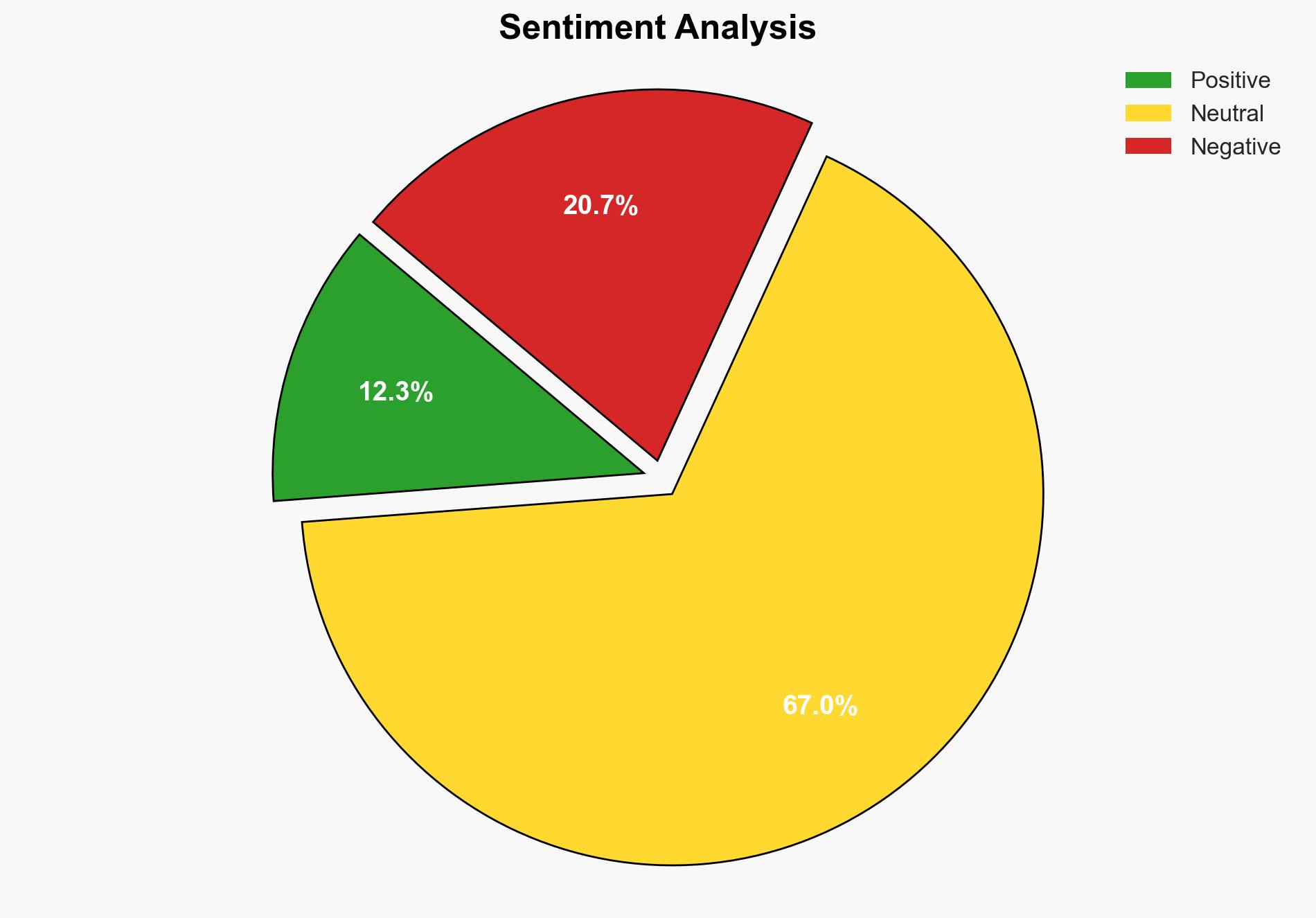What’s in store for war-torn Sudan – DW (English)
Published on: 2025-03-27
Intelligence Report: What’s in store for war-torn Sudan – DW (English)
1. BLUF (Bottom Line Up Front)
Sudan is currently embroiled in a severe conflict between two primary factions, leading to one of the world’s worst humanitarian crises. The ongoing power struggle between Abdel Fattah Burhan and Mohamed Hamdan Dagalo has resulted in significant territorial control issues and a fragmented nation. Immediate international intervention and strategic negotiations are crucial to prevent further deterioration.
2. Detailed Analysis
The following structured analytic techniques have been applied for this analysis:
General Analysis
The conflict in Sudan stems from a power struggle between Abdel Fattah Burhan and Mohamed Hamdan Dagalo, following the ousting of Omar al-Bashir. The Sudanese Armed Forces (SAF) and the Rapid Support Forces (RSF) are the main actors in this conflict. Despite attempts at negotiation, both factions remain entrenched in their positions, with the RSF controlling significant areas, including parts of Khartoum and the western Darfur region.
The humanitarian situation is dire, with millions displaced internally and externally. The involvement of international actors such as Egypt, Qatar, the United Arab Emirates, and Russia complicates the conflict, as these nations have vested interests in Sudan’s resources and strategic position.
3. Implications and Strategic Risks
The ongoing conflict poses significant risks to regional stability and global economic interests. The fragmentation of Sudan could lead to increased regional instability, affecting neighboring countries and potentially leading to a broader conflict. The humanitarian crisis threatens to destabilize the region further, with the potential for increased refugee flows and famine.
International economic interests, particularly in Sudan’s gold and food exports, are at risk. The involvement of foreign powers may exacerbate the conflict, as they pursue their strategic goals.
4. Recommendations and Outlook
Recommendations:
- Encourage immediate diplomatic engagement with both factions to facilitate a ceasefire and initiate peace talks.
- Support humanitarian efforts to address the urgent needs of displaced populations and prevent famine.
- Monitor and regulate international involvement to prevent escalation and ensure that foreign interests do not undermine peace efforts.
Outlook:
Best-case scenario: Successful negotiations lead to a ceasefire and a power-sharing agreement, stabilizing the region and allowing for humanitarian aid distribution.
Worst-case scenario: Continued conflict results in further fragmentation of Sudan, increased regional instability, and a worsening humanitarian crisis.
Most likely outcome: Prolonged conflict with intermittent negotiations, leading to a stalemate and ongoing humanitarian challenges.
5. Key Individuals and Entities
The report mentions significant individuals and organizations involved in the Sudanese conflict:
- Abdel Fattah Burhan
- Mohamed Hamdan Dagalo
- Omar al-Bashir
- Entities: Sudanese Armed Forces (SAF), Rapid Support Forces (RSF), United Nations, and various international actors including Egypt, Qatar, the United Arab Emirates, and Russia.





